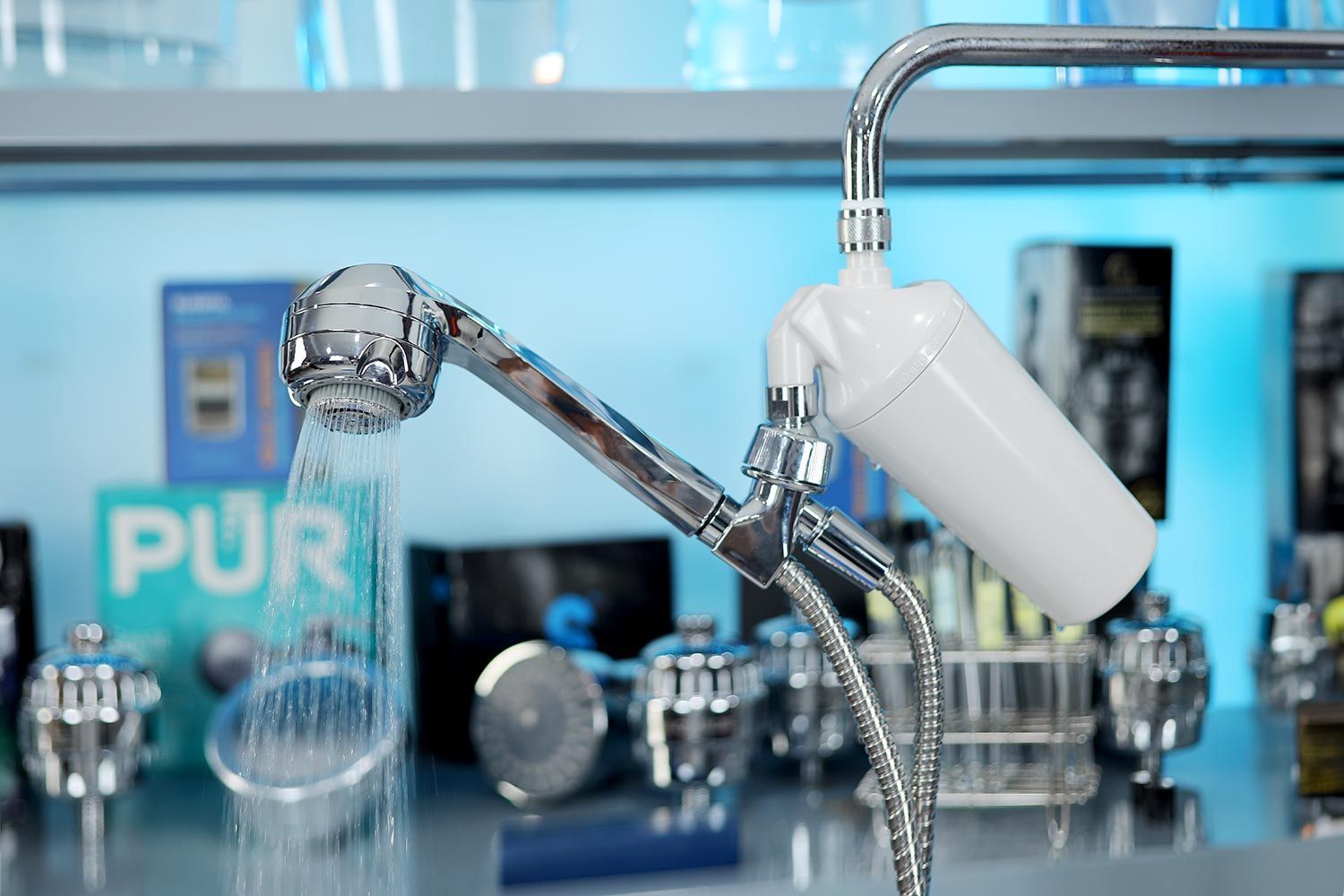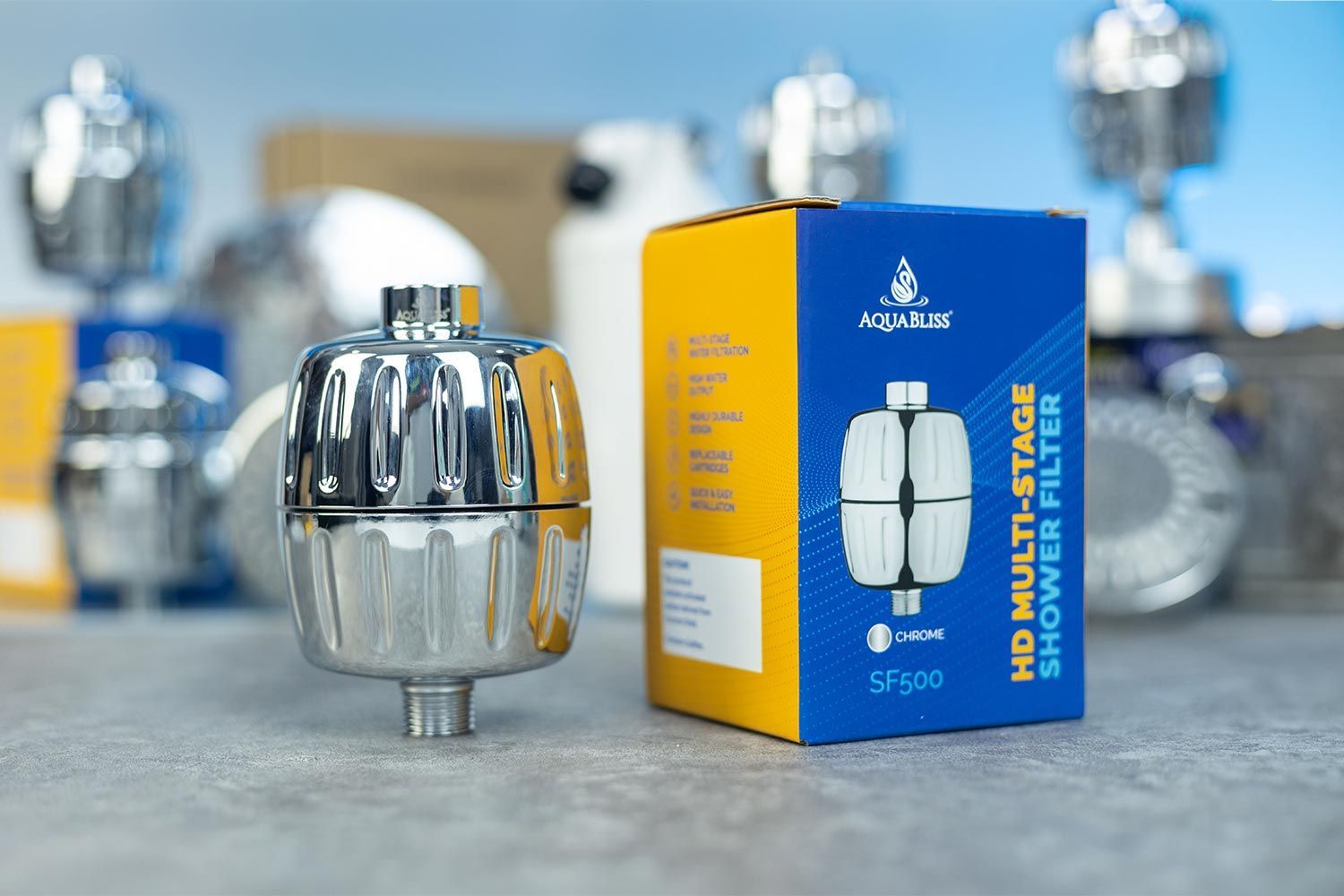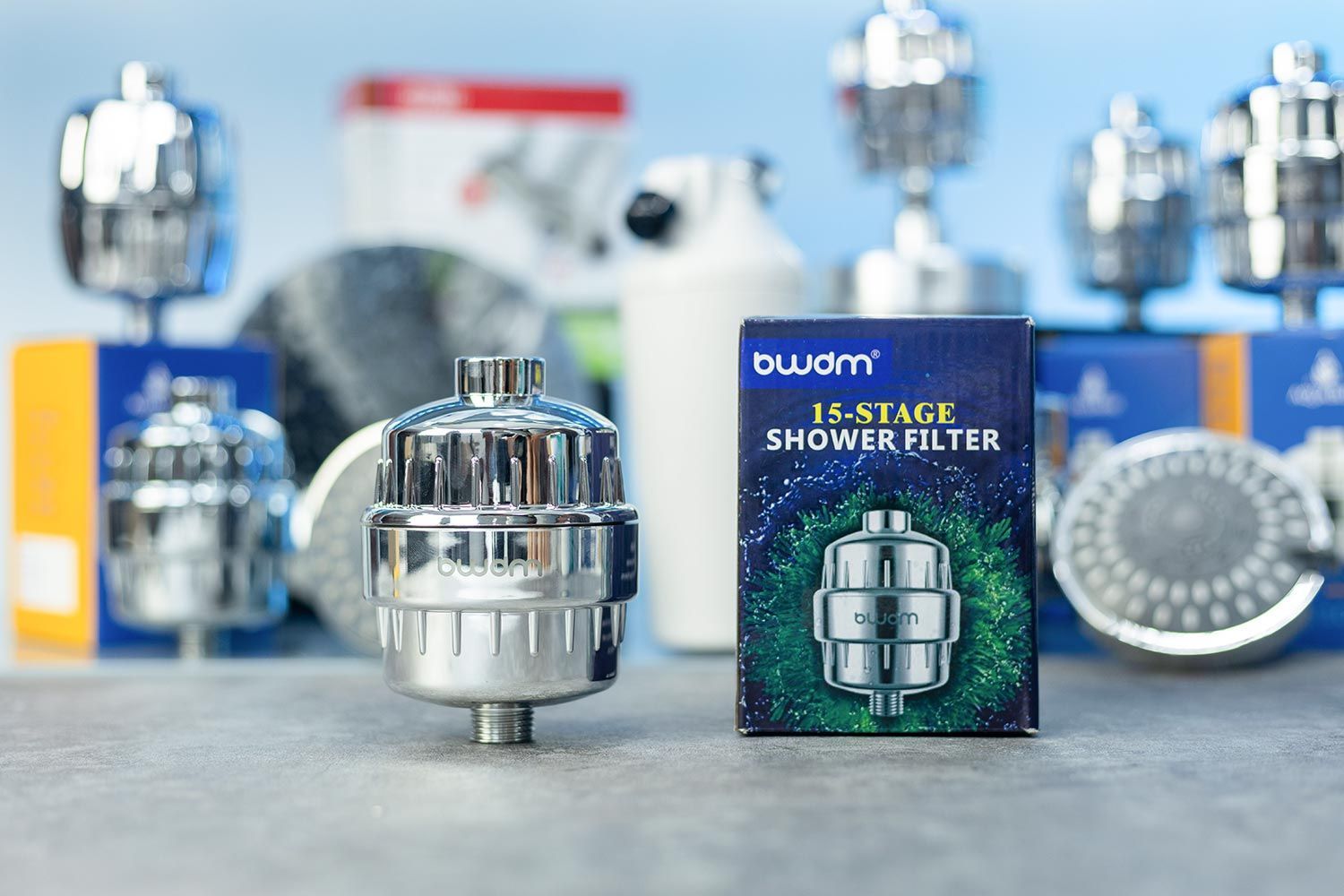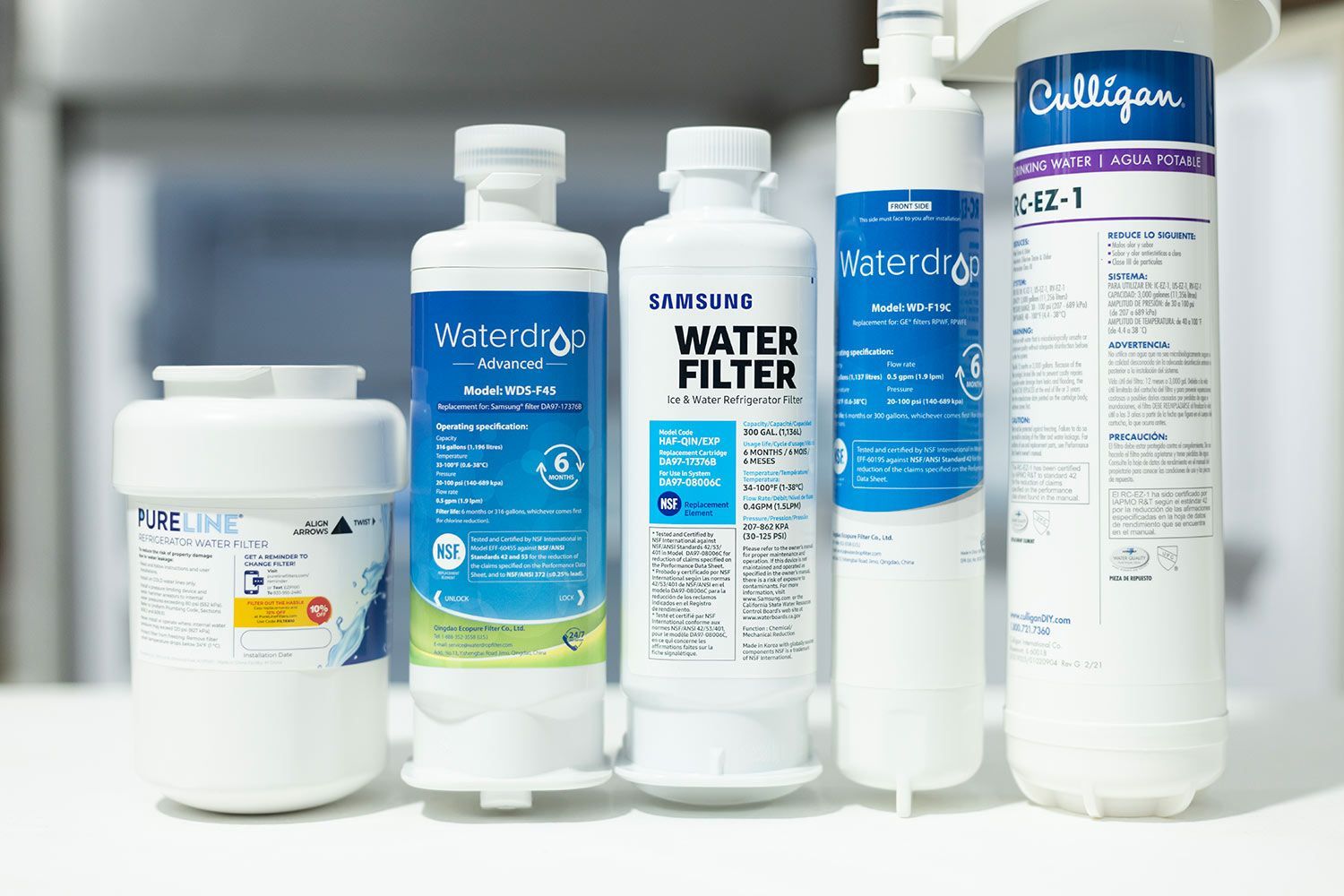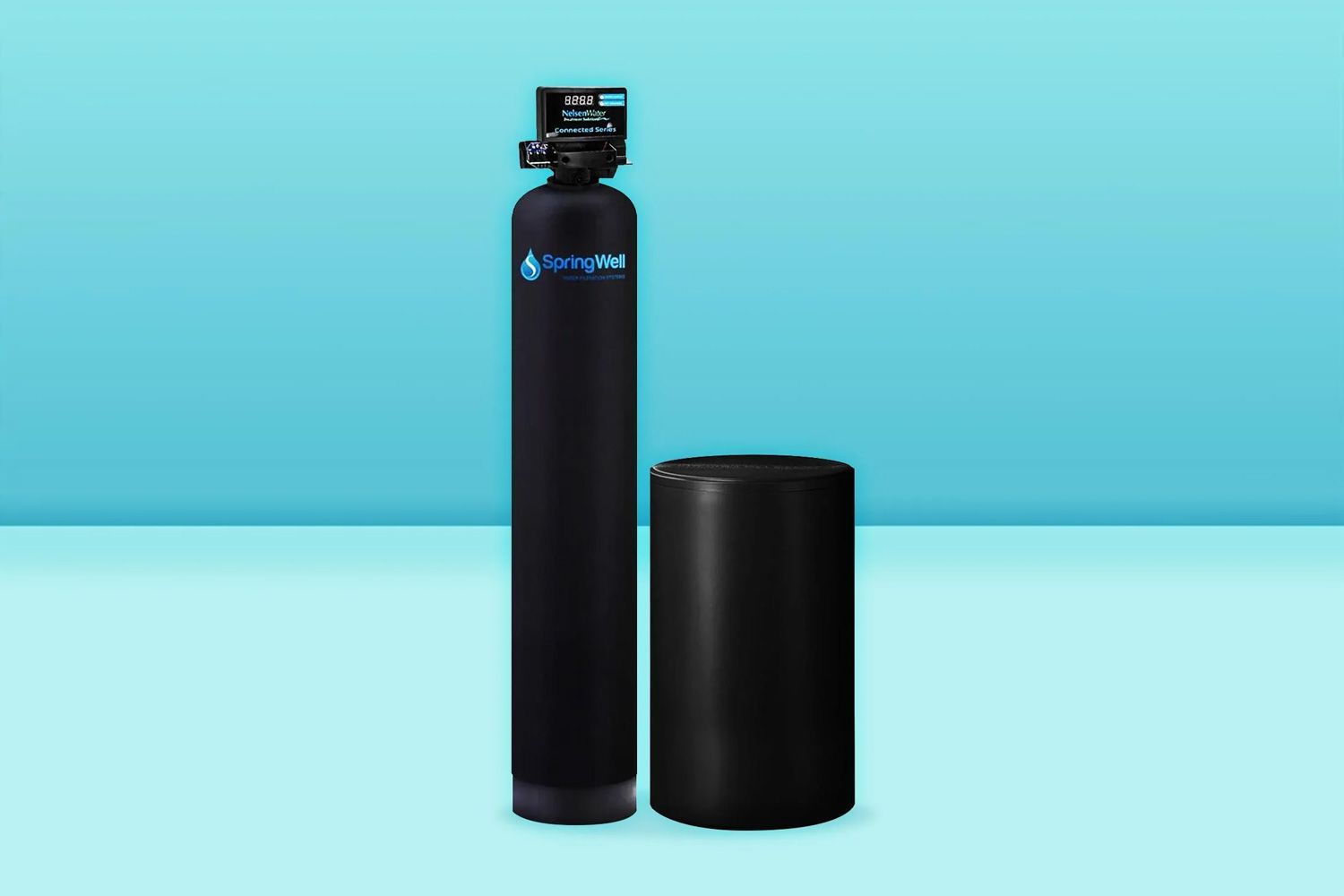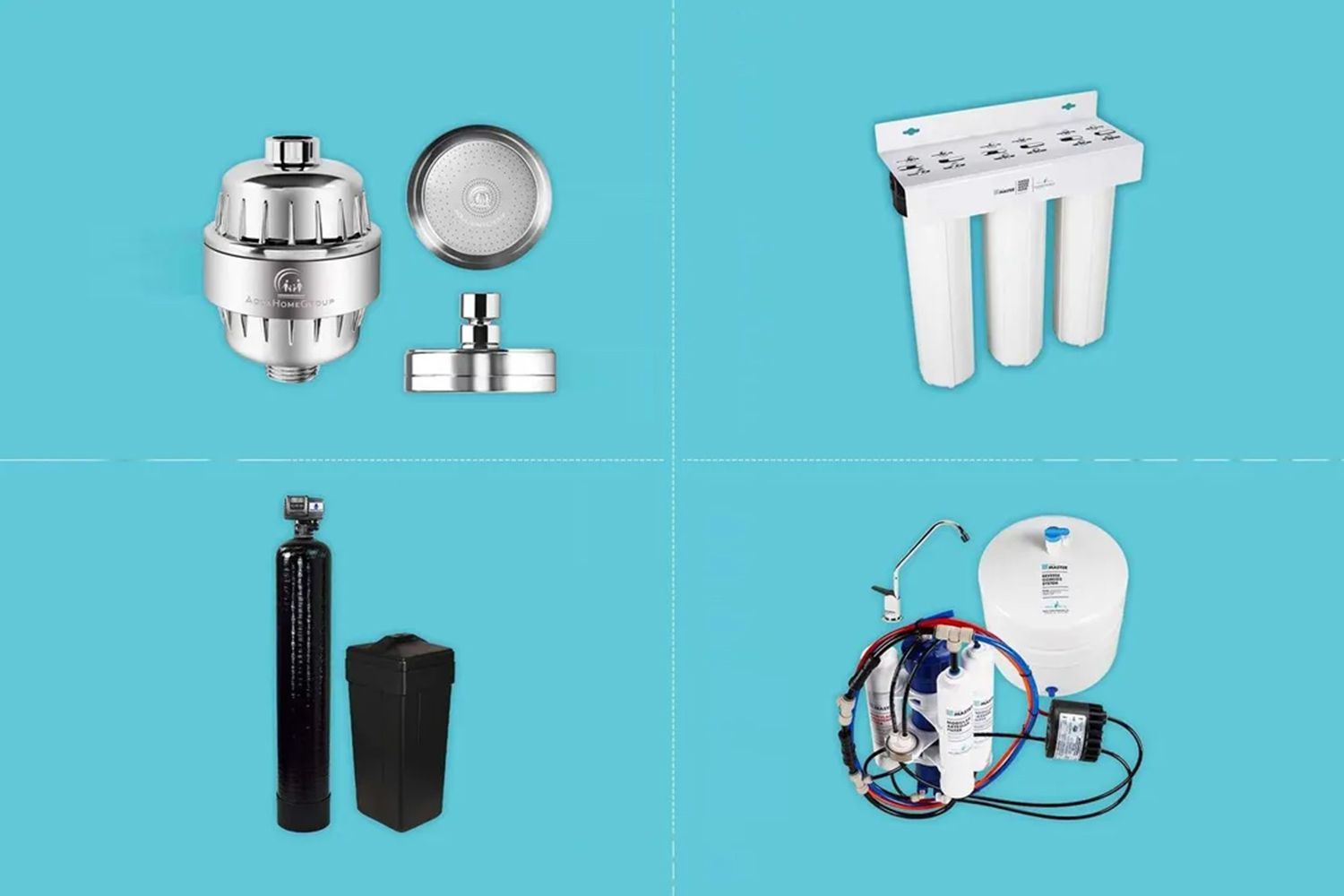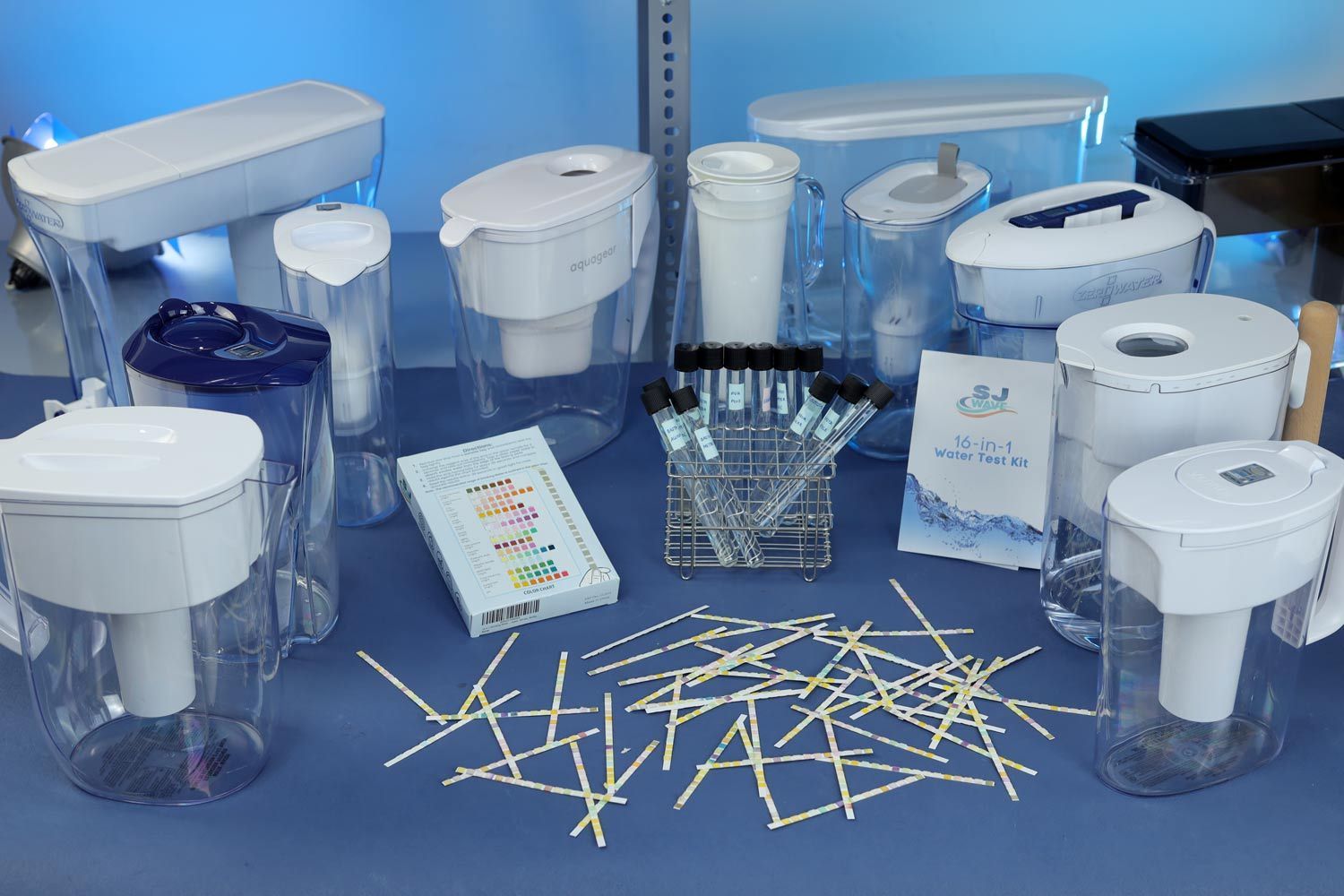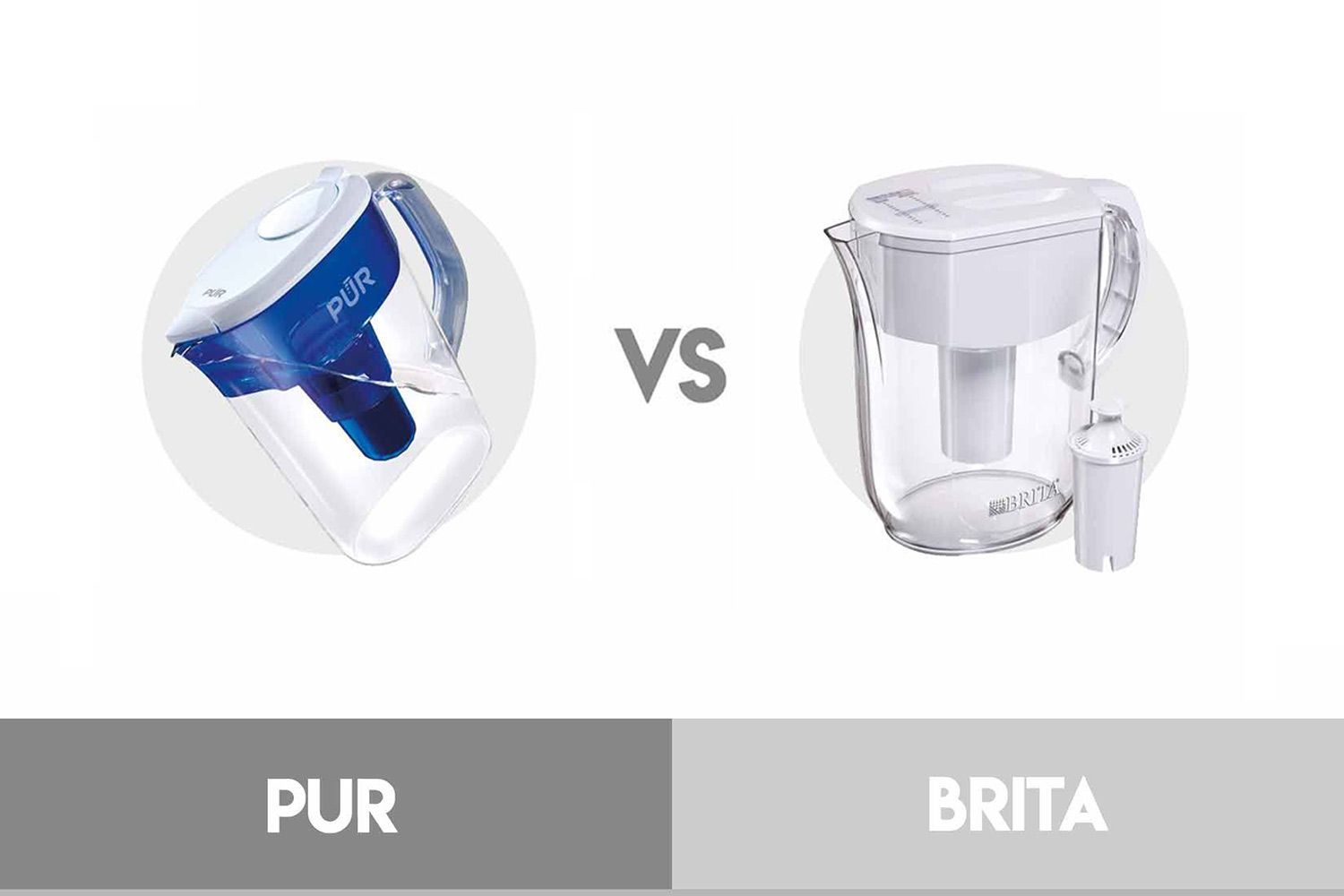The Best Shower Filters of 2024 Tested and Reviewed
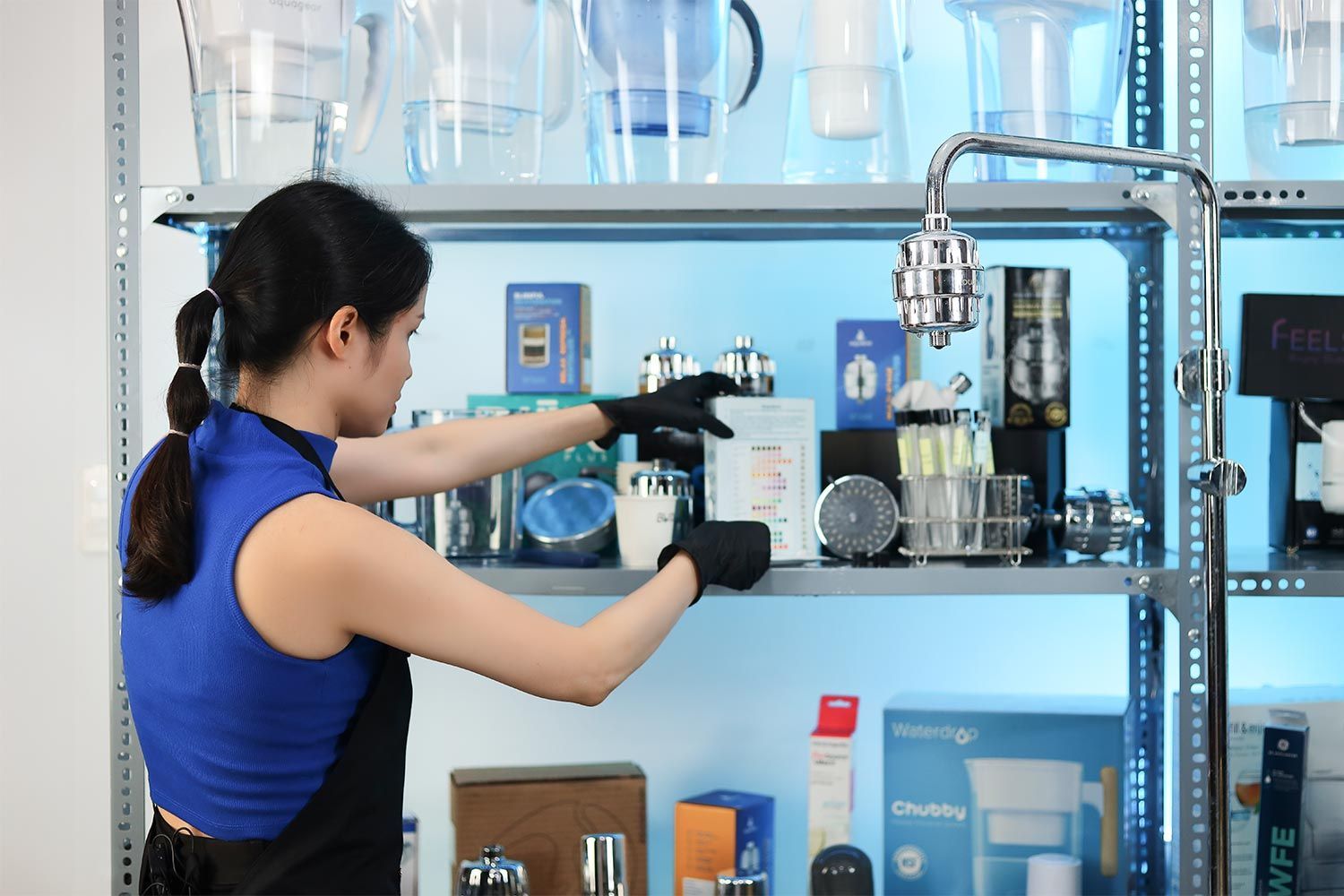
Looking for a game-changer in your shower routine? Shower filters have become all the rage lately, thanks to worries about chlorine's drying effects and the pesky mineral buildup in hard water.
Our team at Shouldit did some digging in customer reviews to find out what really matters when buying a shower filter, then rolled up our sleeves and tested a bunch of products – a dozen, to be exact. In this article, we spill the beans on the best shower filters out there and spill the tea on whether and how they tackle the chlorine and hard water blues.
Our Top Picks
After testing a dozen shower filters, here are the three that we found worthy of our recommendation.
Best Overall: Aquasana AQ-4100 Deluxe Shower Filter
Without the fancy layers of colorful balls in its filter piece, the Aquasana AQ-4100 features a bulky filter that contains materials typically only used in larger, more “serious” filters. And it worked like a charm in our tests.
- Doesn’t add weight to shower head
- Highly effective against chlorine
- Good filter life
- Expensive price
The AQ-4100 was able to reduce the chlorine levels from 10+ mg/L down to 4 mg/L—a performance no other shower filter we tested could replicate. Since the actual concentration of chlorine in municipal shower water is typically much lower, you can count on this filter to cleanse it out without issues. Though we can’t confirm its potential effects on your hair or skin, if your shower water is causing irritations, this filter is worth trying out.
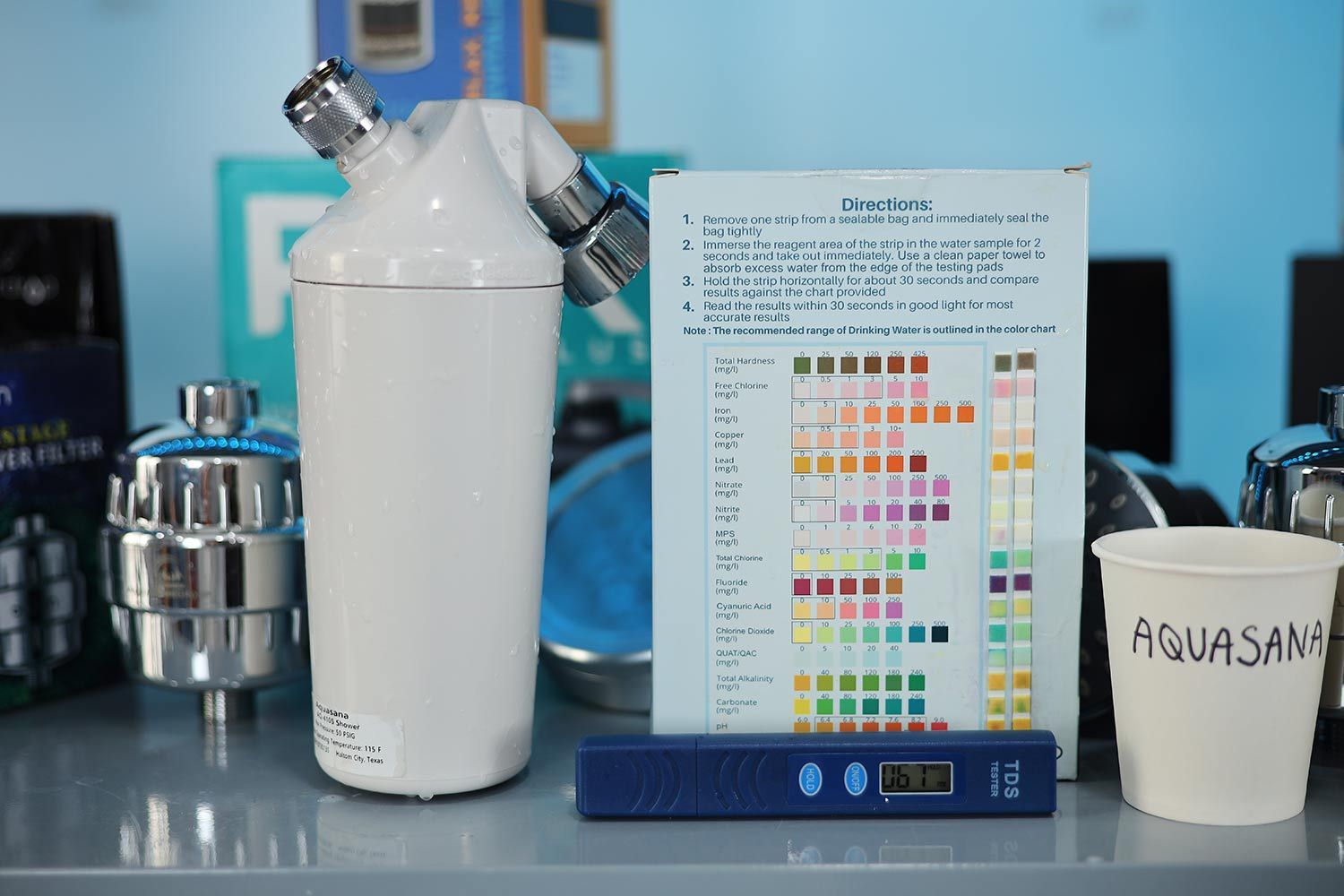
The key lies in its filter composition, which incorporates coconut shell carbon and KDF copper/zinc media. These materials, commonly found in larger household water filters designed to eliminate chlorine and heavy metals like lead or mercury, are found in very few other shower filters. At its size, the filter lasts 10,000 gallons in normal conditions, equivalent to approximately 625 showers assuming each utilizes 16 gallons of water.
The downside is that the Aquasana AQ-4100 is bulkier, heavier, and more expensive than most. Despite this, its unique design requires attachment to a fixed shower head or the arm mount of a handheld one, ensuring that its weight does not impact your hands. Aquasana offers the option to purchase it as a bundle with its own handheld showerhead if needed.
Price at time of publish: $79.99
- Stages of filtration: 2
- Filter media: Coconut shell carbon, KDF copper-zinc media
- Target contaminants: Chlorine, lead, iron, chemicals
- Approximate filter life: 6 months / 10,000 gallons
- Shower head: Optional
Runner-up: AquaBliss SF500 Shower Filter
While the AquaBliss SF500 may not match the performance of the Aquasana, it still stands out as one of the genuinely effective options, and the added bonus is its more budget-friendly price.
- Effective against chlorine
- Easy installation
- Good filter life
- Overly tight fitting parts
- Large size, heavy weight
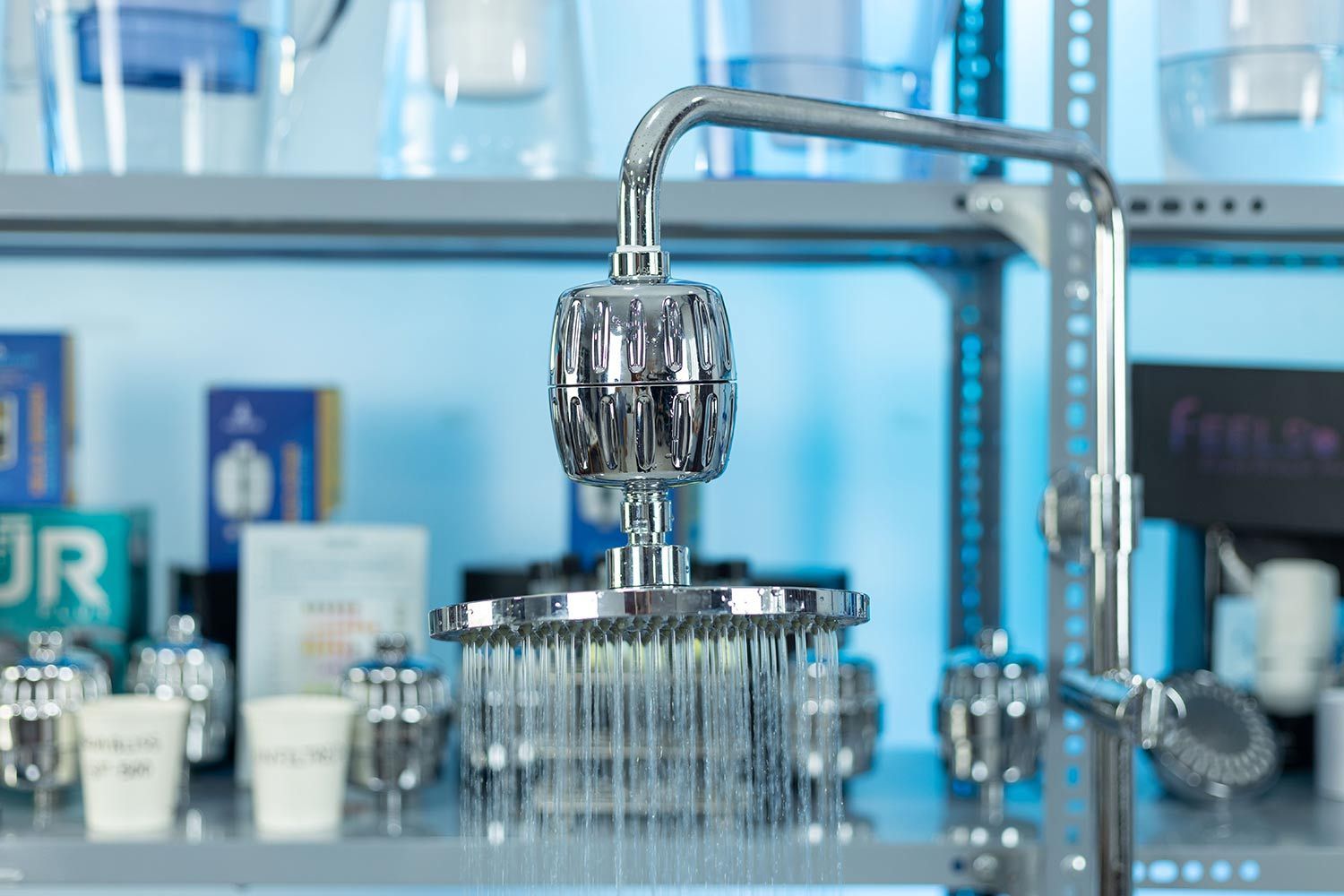
We also examined its earlier and smaller counterparts, the SF 100 and 220, but only the SF500 yielded positive results. Its larger size, while contributing to its effectiveness, does translate to a heavy weight (15 oz or 425 g). It can technically stay on a handheld shower head if you want to incorporate weight lifting into your shower session, but is better installed on a fixed system.
Installation is straightforward, but disassembling the parts for replacement can be a bit cumbersome. Fortunately, each filter has a lifespan of up to 6 months, mitigating the inconvenience of frequent replacements.
Price at time of publish: $37.99
- Stages of filtration: 3
- Filter media: calcium sulfite, redox, activated carbon
- Target contaminants: Chlorine, heavy metals
- Approximate filter life: 6 months
- Shower head: Optional
Best Compact: BWDM 5 Stage Shower Filter
The BWDM stands out for its compact design, easy installation, and impressive filter lifespan. However, its inclusion in our top picks was, in part, thanks to the underwhelming performance of other options in the chlorine test.
- Small size, lightweight
- Affordable price
- Long filter life
- Moderate effectiveness against chlorine
This showerhead filter comes in two versions. The standard 15-stage filter contains a small amount of the serious stuff (KDF, carbon, and calcium sulfite) along with the typical ceramic and mineral balls. The “enhanced” filter, meanwhile, skips the gimmicks and features only the essential trinity.
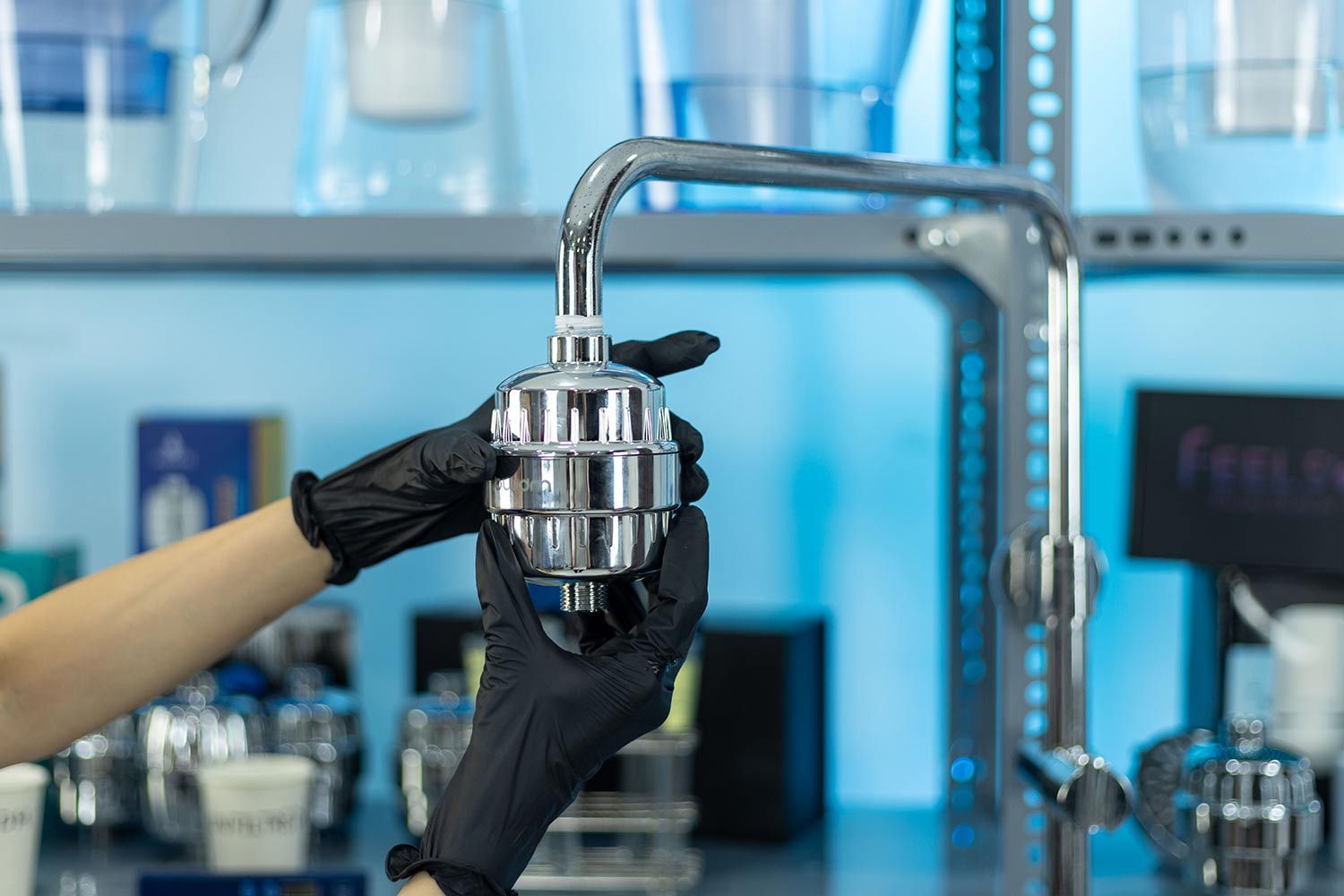
We tested the standard version and was delighted to see it reduced the chlorine concentration to 9 mg/L. While this was a modest result, it can still be meaningful in the context of normal shower water, which usually starts with a much lower chlorine level.
Usability wise, the filter is compact enough to be easily mounted to your shower head wand without significantly increasing its weight. If you frequently hold your showerhead in your hands, this option may be the most suitable among our recommendations. Installation and replacement are straightforward without the requirement of additional tools.
Price at time of publish: $19.60
- Stages of filtration: 15
- Filter media: KDF 55, carbon, calcium sulfite, ceramic, vitamin C, +
- Target contaminants: Chlorine
- Approximate filter life: 6 months (12,000 gal)
- Shower head: Not included
Competitors
There wasn’t much of a competition among the shower filters we tested—the three we recommended were the only ones that actually worked in reducing chlorine.
That said, if chlorine is not your number one concern, here are some other shower filters we found interesting.
MXBold shower head & filter
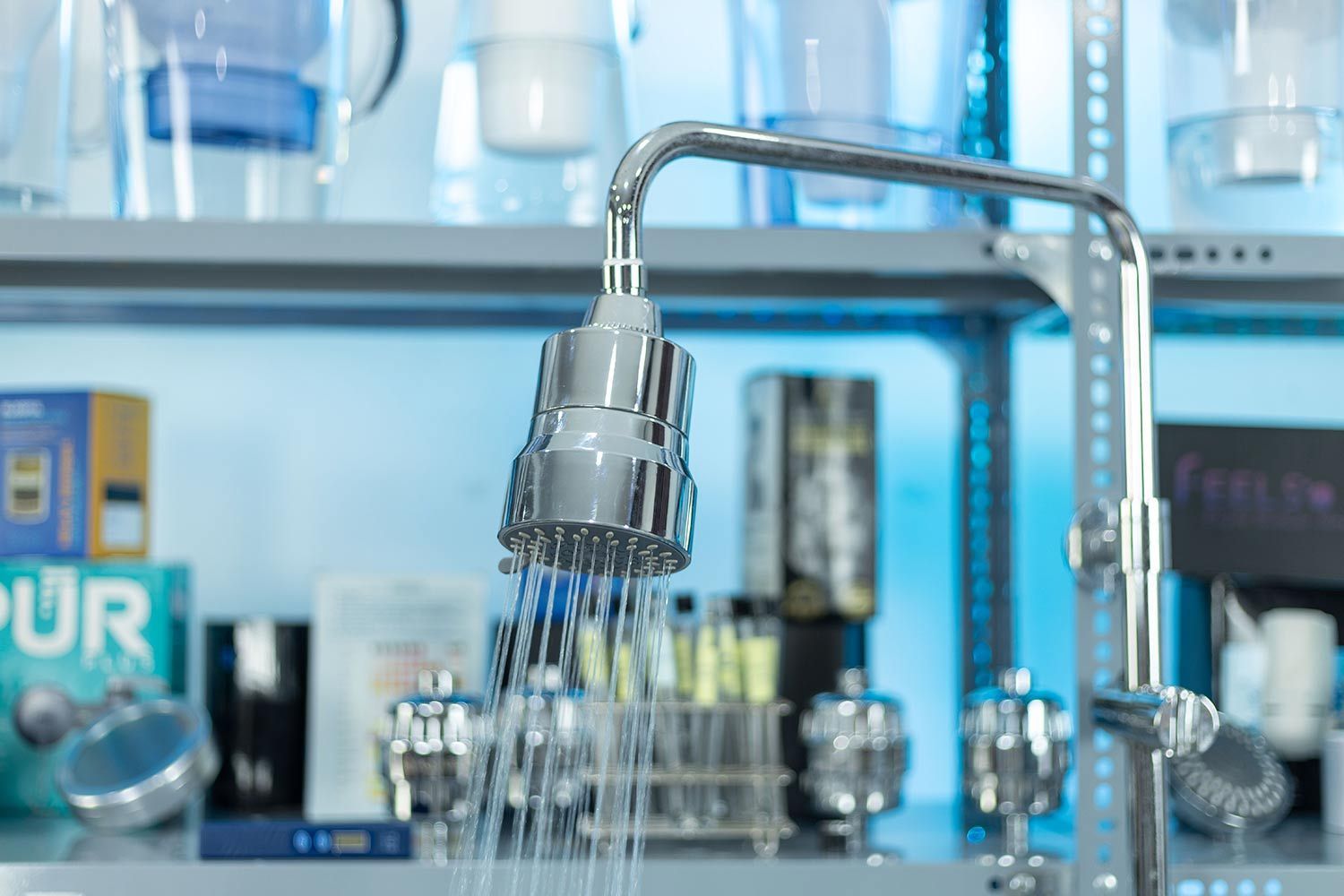
The MXBold stands out as a substantial and sizeable showerhead-filter combination. Its commendable features include an impressive appearance and a budget-friendly price. On the flip side, it falls short when it comes to chlorine filtration, a crucial consideration for many seeking an optimal bathing experience. In addition, you also can’t attach it to your existing shower head.
AquaBliss SF100 and SF220 shower head filters
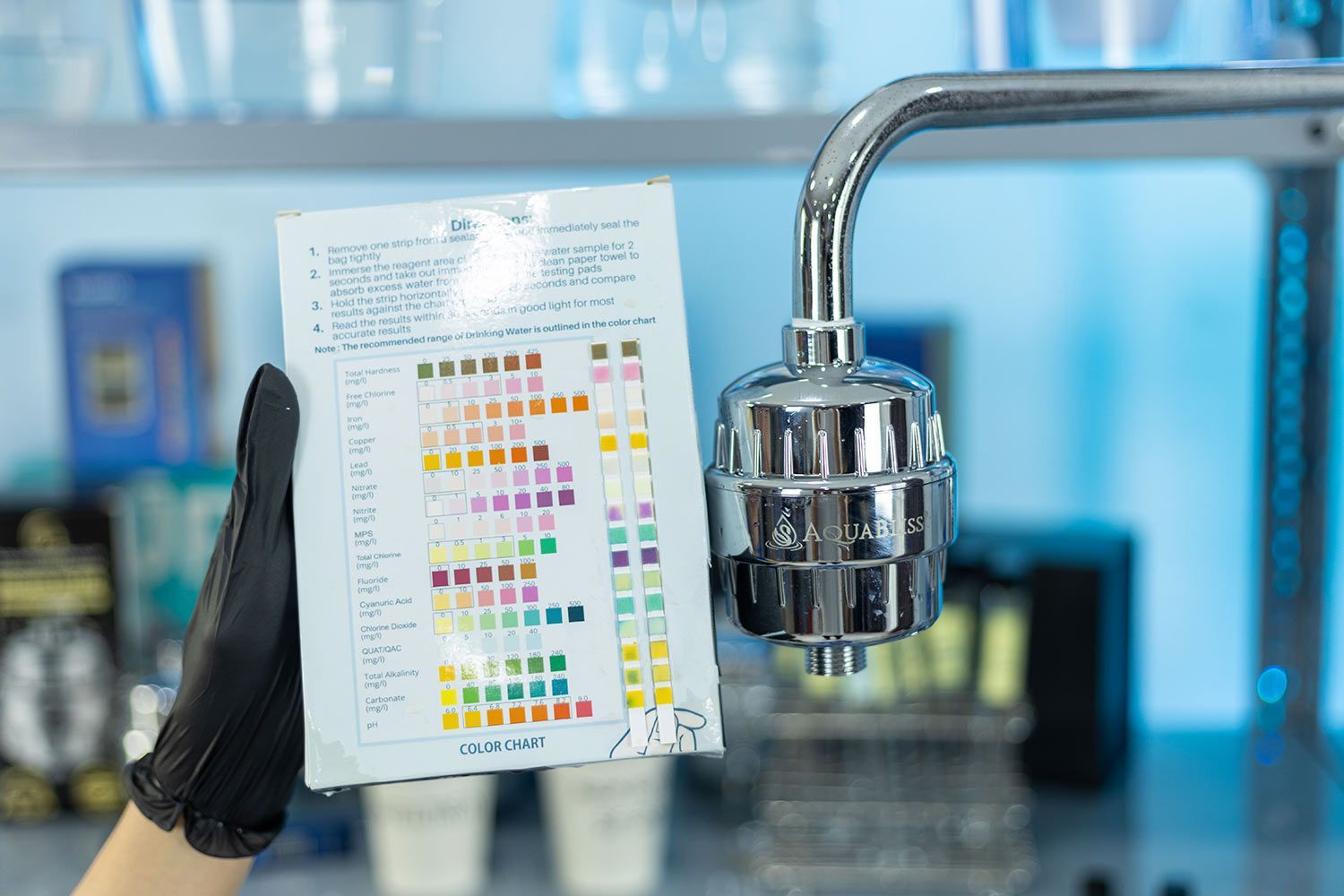
The AquaBliss SF100 and SF220 shower head filters stand out for their compact design and budget-friendly pricing, yet these appear to be their sole compelling features. Unfortunately, they fell short in reducing chlorine levels, with minimal to no discernible impact. It's worth mentioning that the manufacturer asserts a slightly higher effectiveness for the SF220 compared to the SF100, but neither appeared to work in our chlorine test.
How We Test
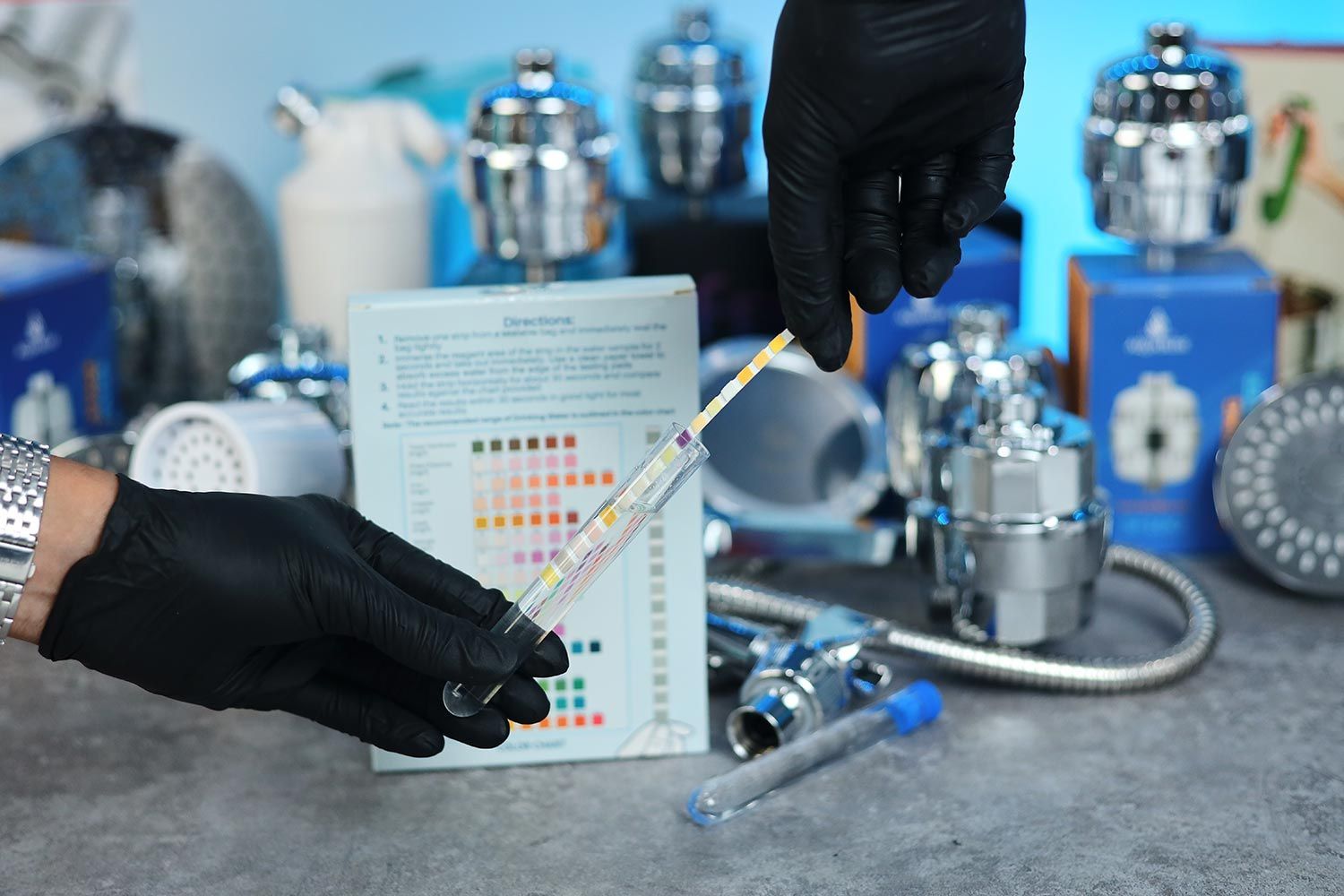
For Performance, we run water with a high chlorine concentration through each shower filter and, using test strips, check for the chlorine level in the unfiltered and filtered water. We also measure the total dissolved solids (TDS) before and after filtration using a TDS tester.
For Design and Usability, we take notes on the build quality and material of the unit, how easy or difficult it is to install the filter, and if we have to use additional tools to do the job, among other factors.
Do You Need a Shower Filter?
Not everyone needs a shower filter.
If you live in the US and are using municipal water, you have “one of the safest and most reliable” drinking water systems in the entire world. If your water is good enough for drinking right out of the faucet, then it’s probably good enough for a quick shower.
Of course, we don’t always live in ideal conditions. Old plumbing systems tend to add rust and other contaminants to the water. Chlorine, a major disinfectant in municipal water, has a distinct odor that can be off-putting to some. There have also been concerns about chlorine causing hair dryness and brittleness, as well as skin irritations. Most people who’ve taken a plunge in a chlorinated pool can confirm those effects. It’s worth noting, however, that we tend to spend more time on a swimming session compared to the duration of a shower (8 minutes), so unless you’re sensitive to chlorine, a filter is a nice-to-have rather than a necessity.
For those using well water, it may be helpful to filter out dirt, algae, or rust. That will prevent clogging and prolong the life of your shower head while also giving you a more refreshing shower.
Many shower filters claim to eliminate or at least neutralize chlorine and contaminants, and even soften hard water. According to our testing, a few are actually effective against chlorine, and we’ve found none to have any remarkable effects on water hardness.
Things to Keep in Mind When Buying a Shower Filter
It’s not feasible nor practical for us to get our hands on every shower filter out there. Here’s what we learned from our testing that may be helpful when you’re considering buying one that’s not in our “tested” list.
Filter Composition
This is the most important factor when choosing a shower filter (or any kind of filter, for that matter). Pick the filter media according to what you want in or out of your shower water.
- Sediment: If you’re mostly looking to remove (a small amount of) dirt, rust, and visible particles from the water, a cheap mesh + PP cotton filter should do suffice.
- Chlorine: Look for materials with a proven record for chlorine removal: activated carbon, KDF, and calcium sulfite. As impressive as they may look, it’s safe to skip multi-stage filters that do not contain a substantial amount of those.
- Water hardness: Do not rely on a tiny shower filter to soften your hard water. We have yet to find one that does, regardless of the filter composition.
- For improving skin and hair: We don’t have the capacity to test the benefits of minerals and vitamin C in shower filters, nor did we find any trustworthy scientific evidence. Anecdotal claims are abundant, however, so it may be worth trying.
Filter Life
While replacement is simple with most shower filters, it’s best not to have to constantly wonder if it’s already time. Find filters that can last at least 4-6 months to buy you some peace of mind.
Size
In the world of filters, bigger is better because it means the filter contains a larger amount of filtration substances. Bear in mind, though, that a bulky filter may affect the maneuverability of your handheld showerhead. Before you buy a filter, verify if it’ll be compatible with your existing shower fixture or will require a new one.
FAQ
If your goal is to reduce chlorine, some, but not all, shower filters are capable of that. We found that those featuring KDF and charcoal in their filters are the ones most likely to rid of chlorine in your shower water.
Shower filters, however, are generally not effective against hard water. If you have hard water in your home, we recommend looking into installing a water softener.
Hard water is characterized by a total dissolved solids (TDS) level exceeding 120 mg/L. In our evaluation of shower filters, we conducted measurements of water TDS both before and after filtration, and consistently saw an insignificant increase in all cases. This implies that none of the tested shower filters demonstrated the ability to soften the water. In fact, most, if not all, released additional minerals into the water, contributing to the observed increase in TDS.
Not in our experience. We got stable and normal flow rates with all of the shower filters we tested.
Our Expertise
Anh Ngo has years of experience with filter pitchers, shower filters, and whole-house filters in her own home, and has done extensive research on the different types of home water filters and softeners. As this research project’s guiding force, she was responsible for designing and directly carrying out both trial and final tests for shower filters.
In his role as the test lead for nearly all Shouldit product evaluation efforts, Lap Vo has previously engaged in testing products like faucet filters, water cooler dispensers, and electric kettles. He diligently reviewed the assessments for shower filters, supervised the entire testing process, and contributed to the evaluation of water taste, design, and usability, alongside Nguyen Ntk.
Nguyen Ntk did more for this project than his usual brilliant camera work. His inputs as a new user, especially on assembling tricky units, helped us give the most accurate ratings and advice for the audience.
